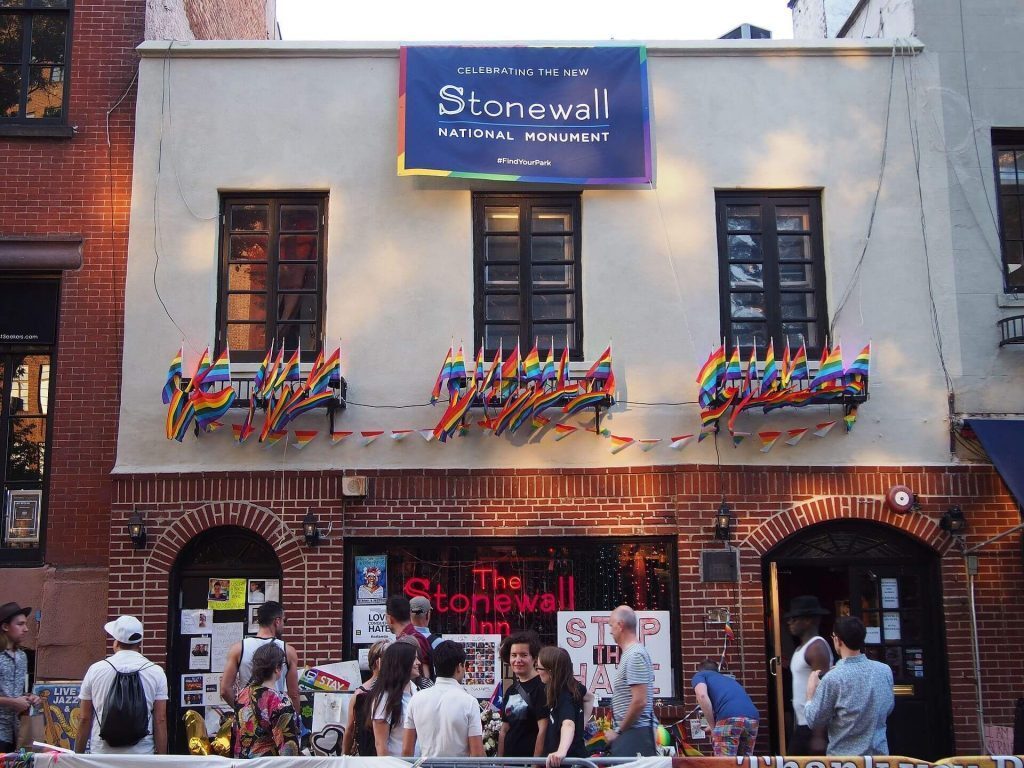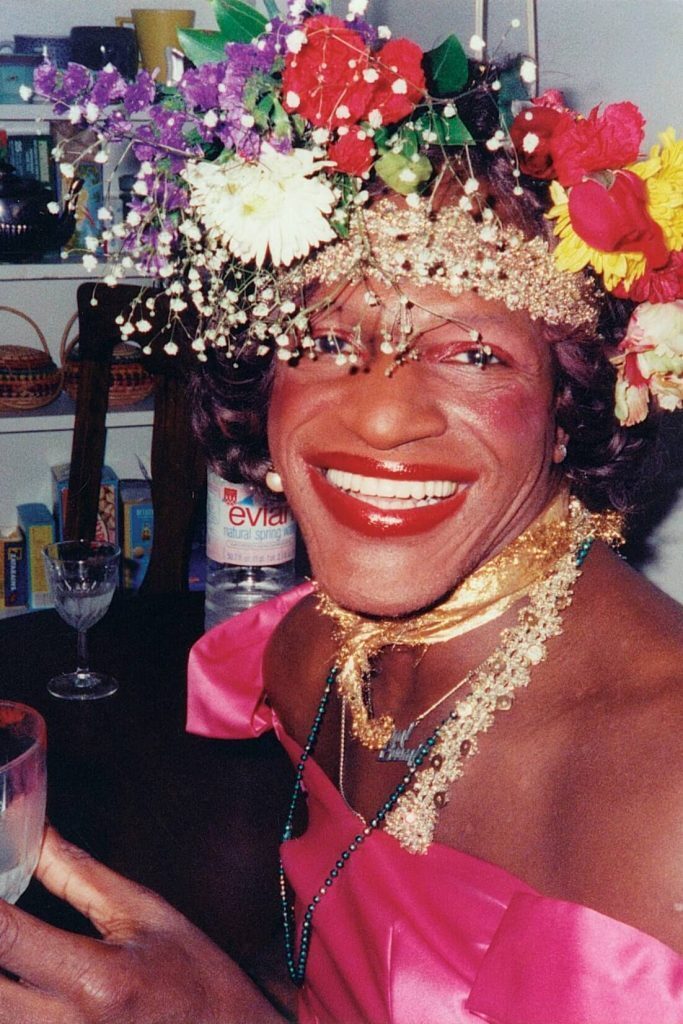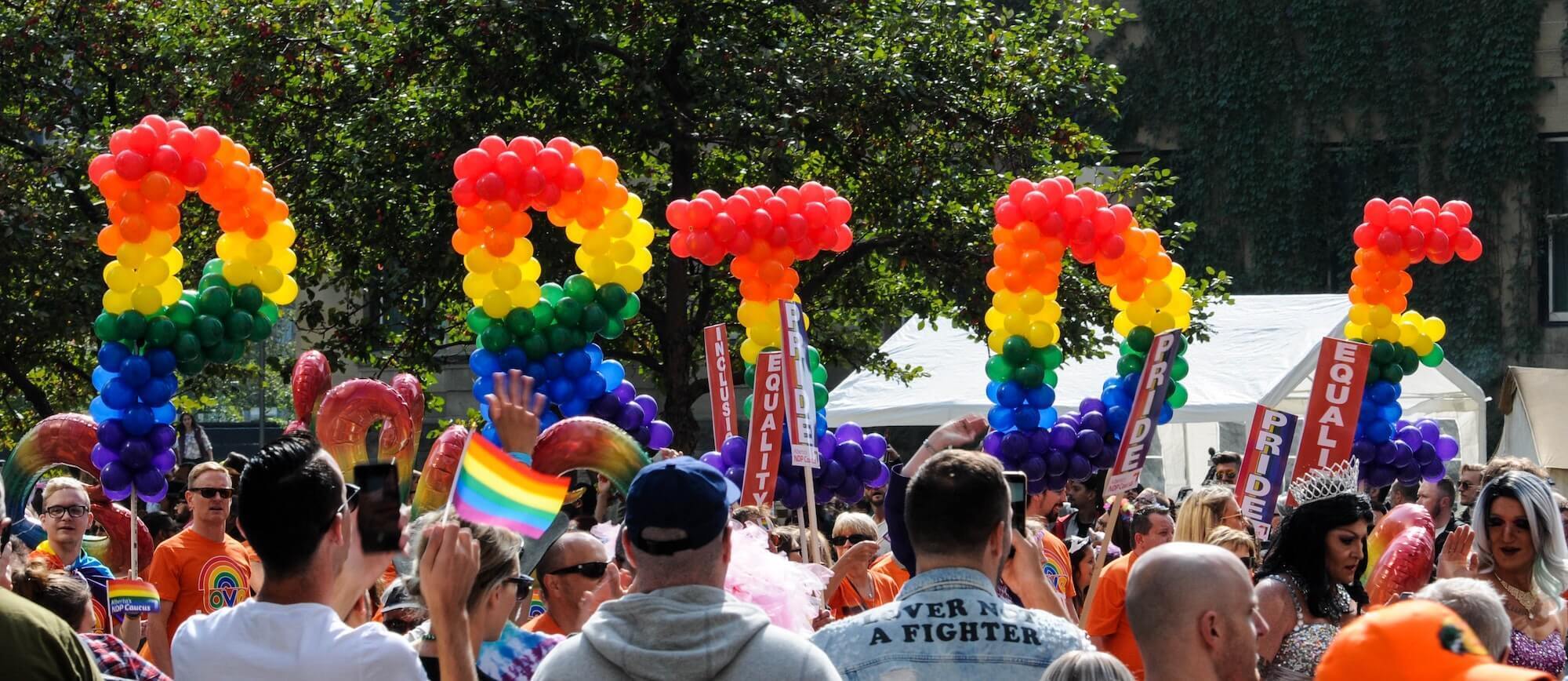Life
The History & Importance of Pride
It’s June and that means Pride season is upon us once again (or as some of us queer folks like to call it — Gay Christmas)! Unfortunately, pandemic regulations mean that, in many places, in-person Pride festivals are mostly canceled (as they were in 2020). But this means that many Pride committees have had more time to plan and put in enormous effort to keep the spirit of the celebration alive by shifting it to an online virtual celebration, so not all is lost!
Table of Contents
I reside in Toronto, Canada, and, due to the situation and regulations here, I am more than grateful to stay home on my couch, comfy and hydrated, watching people perform online. I know we all love a good queer party, but it’s the right thing to do in these difficult times — and will you actually miss the swampy porta-potties? Let’s try to look on the bright side! Now you have a Pride festival where the bathroom is steps away and you can safely wear flip flops. (Side note: what’s up with people who wear flip flops to Pride? Ugh.)
Many folks see Pride as a gigantic party, but the reality is that Pride goes much deeper than getting yourself dolled up, heading down to the parade and grabbing some drinks with your friends while you get sprayed with water guns. It’s more than watching drag queens on floats horribly lip-sync Cher’s “Do You Believe In Love After Love.”

The Stonewall Riots of 1969
At its roots, Pride was born as a protest that evolved from the Stonewall Riots. The intention of staging the festival has always been to create visibility and awareness of the LGBTQ2S+ community and the need to attend to their human rights. But it’s easy to miss the value and message of the festival among all of the corporate signage. The commercialization of Pride celebrations has been a point of contention for many a queer who realize that most of the corporate parade floats are giant symbols of performative allyship. While many of these corporations were never leaders in advocating for the human rights and freedoms of the LGBTQ2S+ community, they tend to ride on the backs of those who have put their life’s blood into making sure that we have the right to exist in our authenticity.
Do I sound annoyed at the commodification of Pride? Well, I am. And here’s why. On June 28th, 1969, in Greenwich Village in Manhattan, New York, police violently raided the Stonewall Inn, a bar known as a place of homosexual social gathering – a.k.a. a gay bar. Six days of protests and resistance ensued, known today as the Stonewall Riots.
It was through these revolutionary efforts and the activism of the queer community that systemic change began to happen — namely, protecting the human rights of the LGBTQ2S+ community. Or at least the white contingent of the community. I say that with intentional awareness of the insidious ways in which intersectionality affects individual rights of a BIPOC queer.

“Raided Premises” sign inside the Stonewall Inn. Credit: Wikimedia Commons
A Celebration, Yes, But Still a Protest
Even though the fight for human rights and legal protections of the LGBTQ2S+ began in 1969, what followed were still years of waiting for the decriminalization of homosexuality in the US and around the world. The unfortunate reality is that in 2021, there are many places in the world where it is still illegal to be gay or transgender. In some places, it is a punishable offense that results in jail time — or even death.
So, when I see the commercialization of Prides, to me, it indicates a lack of memory that this is still a protest. There’s a problem here, and it has repercussions. It is a misconception about the LGBTQ2S+ family that we are all in the good fight together. The reality is, nothing could be further from the truth. White supremacy and the colonialist lens has given societal permission for cisgender white members of the LGBTQ+ community to be excluded from conversations and accountability around racism, transphobia, ableism, fat phobia, sexism, misogyny, bi-phobia, and rape culture, which still clearly exist within the walls of the LGBTQ+ community.
It always reminds me of how family secrets work. We all know they exist; they are palpable and we can see how they impact the family, but no one wants to talk about them because it makes everyone uncomfortable. Well, be uncomfortable: there is a world of queers out there who are excluded from the human rights protections given to white cisgender gays and lesbians. Period. And most of those disincluded folks are BIPOC, transgender, 2 Spirited queers.
Addressing Intersectionality
At Pride Toronto in 2016, Black Lives Matter held a sit-in protest during the march that halted the parade for 30 minutes. The co-founder of Black Lives Matter Toronto, Alexandra Williams, made a statement that the protest was intended to hold Pride Toronto accountable for its “anti-blackness.” I remember being on the sidelines of the parade that day and when I got wind of why the parade had stopped moving, I remember my first reaction being, “Good. This is necessary and I stand with them.”
Sadly, I was one of the few who felt that way. In fact, Black Lives Matter Toronto was scrutinized by much of the Toronto LGBT community for “disrupting” what was supposed to be a fun celebration — in effect, that BLM had ruined the day with their “politics.” This was an unacceptable and violent reaction to the sit-in and, truly, proved to those who understand the need for BLM to protest in the first place, that these responses to the actions were why they had the sit-in in the first place. But this was lost on so many.
And herein lies the reality of what has become of Pride celebrations: they have been so exploited by corporate, colonialist, white supremacist people that BLM was scrutinized and demonized for using the day for what it was originally intended to do. It is a form of protest for equality for ALL queers.

Gay liberation activist Marsha P. Johnson.
It is not lost on me that the first person to stand up and fight back against the violent and homophobic/ transphobic New York City Police Department in the 1969 Stonewall Riots was Marsha P. Johnson, a Black American gay liberation activist who self-identified as a drag queen — and who many of us transgender folks include as a pioneer of trans identity. So it is with the deepest of violent ironies that BLM would be called out for “ruining” Pride Toronto that year with their “politics.” None of us would be where we are if it weren’t for all the BIPOC queer folks who have led the way for all of us to have the rights and freedoms we have. It is a violent systemic irony.
I have often been criticized for calling out the LGBTQ community, the way a family member gets called out for spilling family secrets. I have been told that being critical of our community only makes it easier for cisgender heterosexuals to condemn us for not having our shit together. But I don’t fall prey to those criticisms because it has become abundantly clear to me that insidiously violent threats exist within the walls of our community in an attempt to maintain the power structures of cisgender male white supremacy. And I’m not having it.
Moving Forward Together
As long as there are people in this world being jailed and/or killed for being queer, being discriminated against on the basis of their gender identity and sexuality for employment, housing and health care, being murdered for being Black trans women, we
need Pride. And we need it to be inclusive. And we need it to remain a means of protest because we are not done. We are still being attacked daily by governments who don’t want us to exist, particularly BIPOC folks who are queer.
Yes, I love a good party and I do believe that we need to have a month and day designated to celebrate our existence. But I do not believe that we should use that day as a means to forget our history, or erase and oppress those who do not benefit from the privilege of cis/whiteness.
I look forward to the day when Pride is a celebration of our past, present and future. But we’re not there yet. So, while you celebrate this incredible community this year, remember your roots! And as we all try to heal generational trauma from within our blood family structures, let’s remember to do the same for our chosen family of queers.
Happy Pride!
FAQs
Pride is celebrated annually in June to honor the Stonewall Riots that took place on June 28th, 1969.
The “Stonewall Riots” refers to a series of protests by members of the gay community in response to a police raid at a Greenwich Village gay bar called the Stonewall Inn on June 28, 1969. When the police started to use force, patrons of the Stonewall, as well as others in the neighborhood, fought back.
The Rainbow Flag is a symbol of LGBTQ pride that was designed by activist Gilbert Baker in 1978. The different colors of the rainbow reflect the diversity of the queer community. Today, rainbow colors are often incorporated into designs and logos to show support and solidarity with the LGBTQ community.

